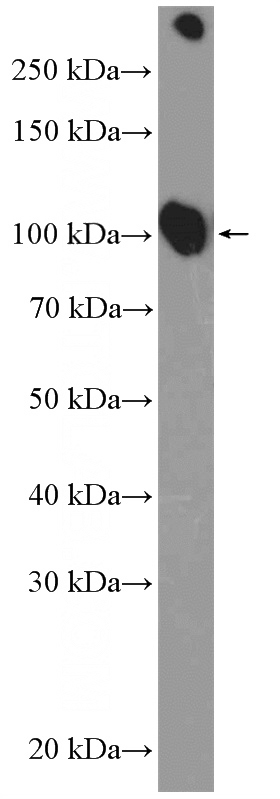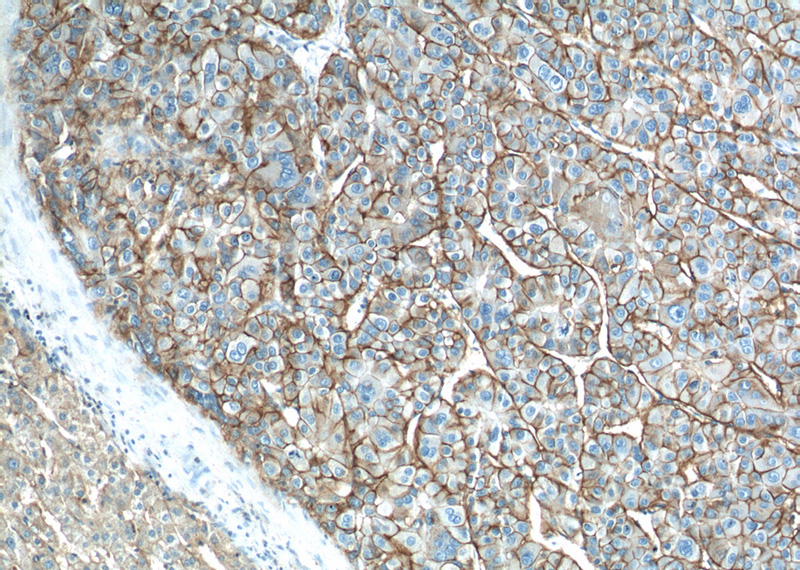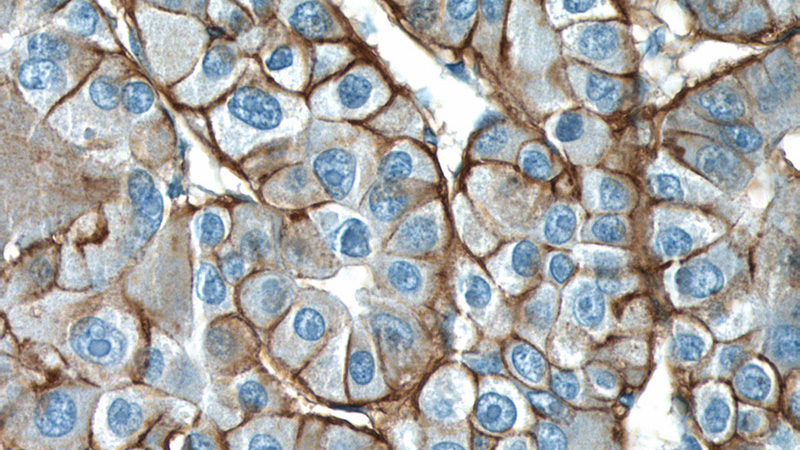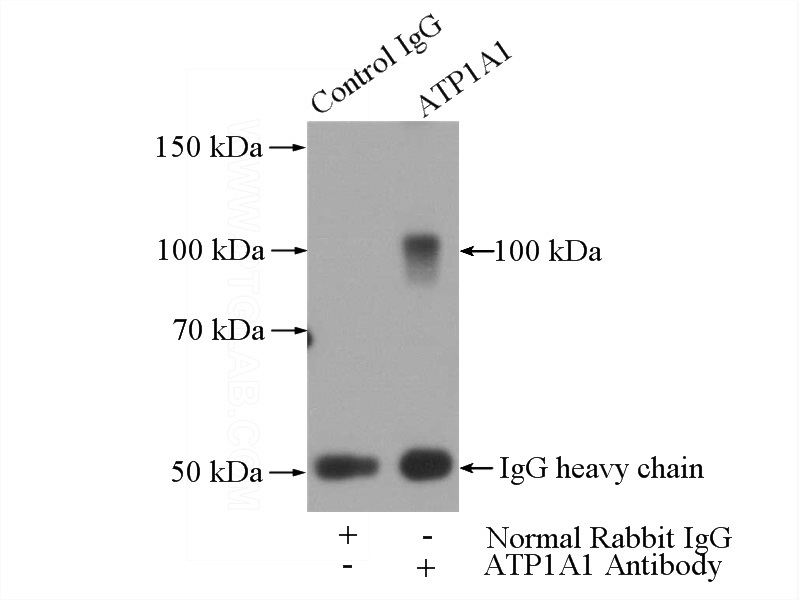-
Product Name
ATP1A1 antibody
- Documents
-
Description
ATP1A1 Rabbit Polyclonal antibody. Positive IP detected in HEK-293 cells. Positive WB detected in mouse heart tissue, A549 cells, COLO 320 cells, HEK-293 cells, human colon tissue. Positive IHC detected in human liver cancer tissue, human ovary tumor tissue. Observed molecular weight by Western-blot: 100kd
-
Tested applications
ELISA, IP, IHC, WB
-
Species reactivity
Human,Mouse,Rat; other species not tested.
-
Alternative names
ATP1A1 antibody; Na(+)/K(+) ATPase 1 antibody; Na(+)/K(+) ATPase alpha 1 subunit antibody; Na+/K+ ATPase 1 antibody; Sodium potassium ATPase alpha 1 polypeptide antibody; Sodium pump subunit alpha 1 antibody
- Immunogen
-
Isotype
Rabbit IgG
-
Preparation
This antibody was obtained by immunization of ATP1A1 recombinant protein (Accession Number: NM_000701). Purification method: Antigen affinity purified.
-
Clonality
Polyclonal
-
Formulation
PBS with 0.02% sodium azide and 50% glycerol pH 7.3.
-
Storage instructions
Store at -20℃. DO NOT ALIQUOT
-
Applications
Recommended Dilution:
WB: 1:500-1:5000
IP: 1:200-1:1000
IHC: 1:20-1:200
-
Validations

mouse heart tissue were subjected to SDS PAGE followed by western blot with Catalog No:117301(ATP1A1 Antibody) at dilution of 1:1000

Immunohistochemistry of paraffin-embedded human liver cancer tissue slide using Catalog No:117301(ATP1A1 Antibody) at dilution of 1:200 (under 10x lens)

Immunohistochemistry of paraffin-embedded human liver cancer tissue slide using Catalog No:117301(ATP1A1 Antibody) at dilution of 1:200 (under 40x lens)

IP Result of anti-ATP1A1 (IP:Catalog No:117301, 4ug; Detection:Catalog No:117301 1:300) with HEK-293 cells lysate 2800ug.
-
Background
ATP1A1 is the catalytic component of Na+/K+-ATPase which is is a membrane bound enzyme primarily involved in generation of Na+ and K+ gradients across plasma membranes and in determination of cytoplasmic Na+ levels. ATP1A1 is a ubiquitously expressed membrane protein and often used as the marker or internal control for plasma membrane protein.
-
References
- Lai G, Wu J, Liu X, Zhao Y. 20-HETE induces hyperglycemia through the cAMP/PKA-PhK-GP pathway. Molecular endocrinology (Baltimore, Md.). 26(11):1907-16. 2012.
- Xiong Q, Cao Q, Zhou Q. Arrhythmogenic cardiomyopathy in a patient with a rare loss-of-function KCNQ1 mutation. Journal of the American Heart Association. 4(1):e001526. 2015.
Related Products / Services
Please note: All products are "FOR RESEARCH USE ONLY AND ARE NOT INTENDED FOR DIAGNOSTIC OR THERAPEUTIC USE"
